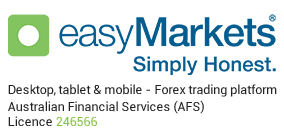Congratulations! You have decided to learn about options. This may be your first lesson ever or a refresher course but our goal is to make an introduction to options interesting and easy.
Did you know options are another way to trade the markets but they empower a trader to do a lot more than follow price direction?
What is an option?
An option is a contract sold by one party (the writer) to another party (the holder). The contract offers the buyer the right but not the obligation, to buy or sell a financial asset at an agreed upon price in the future. The financial asset in our case is the currency or commodity.
Option contracts can be described as an insurance policy to insure the price of a financial asset and similar to an insurance policy, the buyer has to pay the seller a premium. The premium is the value of an option contract.
Examples
Today, you are exposed to options in many aspects of your life and you may not even realize it! Here are some examples:
- Have you ever paid a membership fee to a club or store just to receive lower prices on goods? You were sold an option which gives you the right to buy an amount of goods at a certain price over a certain duration and when you execute it you receive your goods at a lower price. If you don’t use your option, the store charges you full-price for the goods purchased.
- If you want to buy something in the future, like a house, and want the ability to buy it without competing against others, you are buying the option (or the right to buy, but not the obligation) when you place money down. You would lose the initial investment if you chose not to buy the asset or in this case the house in the future. Alternatively, you may gain in this example, if prices rise and you can buy the asset or house, at a lower price.
- Companies in which you purchase products from are trading options to hedge their costs. For example Jewelers have to purchase gold often and they may secure future prices, eliminating risk, through buying options.
The above examples use tangible assets and it is much easier to imagine buying and selling physical assets. When you transcend to Over-the-Counter trading (electronic trading), you will be trading intangible assets since you will never actually receive the goods you are buying or selling.
If you are wondering if you can just simply buy and sell options to make money, yes you can! Our lessons start by teaching you the most simple buy strategies to trade market movements.
Many people think of the stock market when they think of options. However, the foreign exchange market also offers the opportunity to trade forex options and our lessons will focus mostly on these unique derivatives. Since forex options are traded over-the-counter (OTC), traders can choose the specific market rate and date on which an option is to be valid, then receive a quote stating the premium they must pay to obtain the option.
Why trade options?
You may be wondering, “Why trade an option and not the underlying asset?” Good question, because…
- When buying an option, your downside risk is limited to the option premium (the amount you paid to purchase the option).
- When buying an option, you have unlimited profit potential.
- You can pay less money up front than for a forex position.
- You can build strategies to trade many different market outlooks, such as a strategy profiting from a move in either direction.
- Options can be used to insure an open forex deal (or a portfolio of deals), to trap profit, and/or limit risk.
Good news, if you did not understand any of these terms, they will be explained in the next few lessons!






